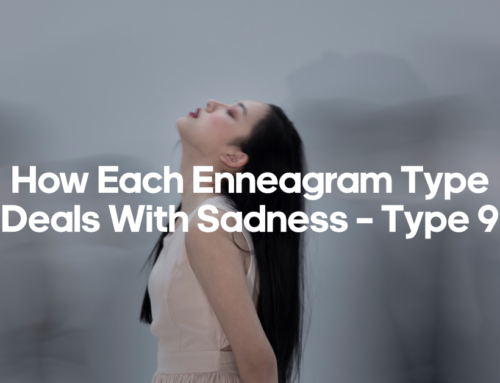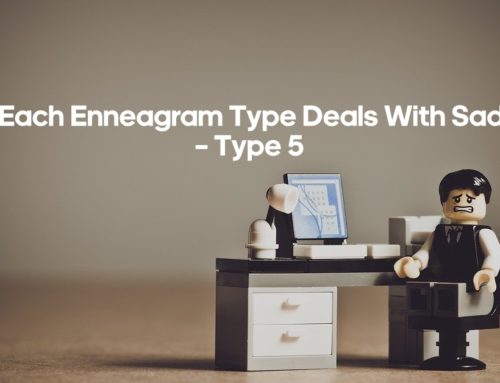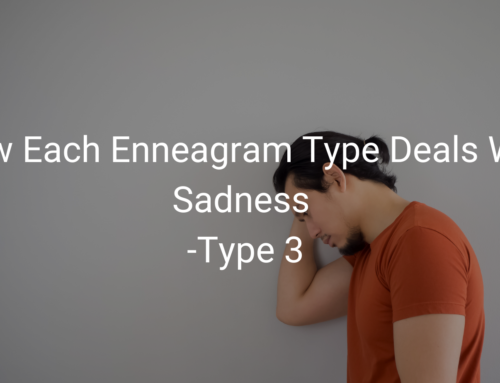To date, we have covered the heart-centered Types – Type 2s, Type 3s and the Type 4s; as well as the head-centered Types – Type 5s, Type 6s and Type 7s .
So far, we have focused on the Type 8s and Type 9s.
We end our look (and this series) with the look at the last of the head-centered Types – the Type 1s.
Type 1s when dealing with sadness
Type 1s deal with their sadness through reaction formation. They use this to turn something negative – frustration, sadness and anger – into its polar opposite, which then renders that ‘wrong’ into a harmless ‘right’.
For example, if a 1 is experiencing sadness and does not feel like completing any tasks in the day, they may start internally judging themselves that it is wrong to be feeling that way. Using reaction formation, they turn that judgement into a socially acceptable emotion by becoming excessively happy and perky as they go about their work tasks.
This way, the Type 1s changes their mental focus to only allow themselves to feel the positive end of complex sets of emotions.
This defense mechanism helps the 1s to protect themselves from feeling the full force of being internally judged for their ‘inappropriate’ feelings (such as sadness).
What to say to a Type 1 dealing with sadness
- “Sadness is a part of our life and it can be beautiful when it is processed. Come, let’s process this together.”
- “There is no wrong or right to sadness. But to deny you have sadness is wrong because you are denying yourself peace, so let’s make that right by processing this together”
- “Let’s improve the level of happiness in you by talking about how this sadness is making you feel. Together, we can make your mood right again”
An Encouragement to our Type 1s
Sadness is a beautiful part of life and being able to be present to your hurts and pain is doing what is right for yourself. Denying sadness is also denying the essence of what the journey of life is – a life that has both ups and downs. Embrace that there is beauty in imperfections and you will find much freedom in it.
For anyone with a Type 1 in your life, help them process their sadness by sitting with them and assure them that you are there for support and not to judge. Speak only when they ask and do not offer solutions. They will find their own way.
————-
Want to do the right thing for yourself and find out who you are at your core through the Enneagram Framework? Contact us to find out when our next course runs are and use your SkillsFuture Credits to offset our course fees!





